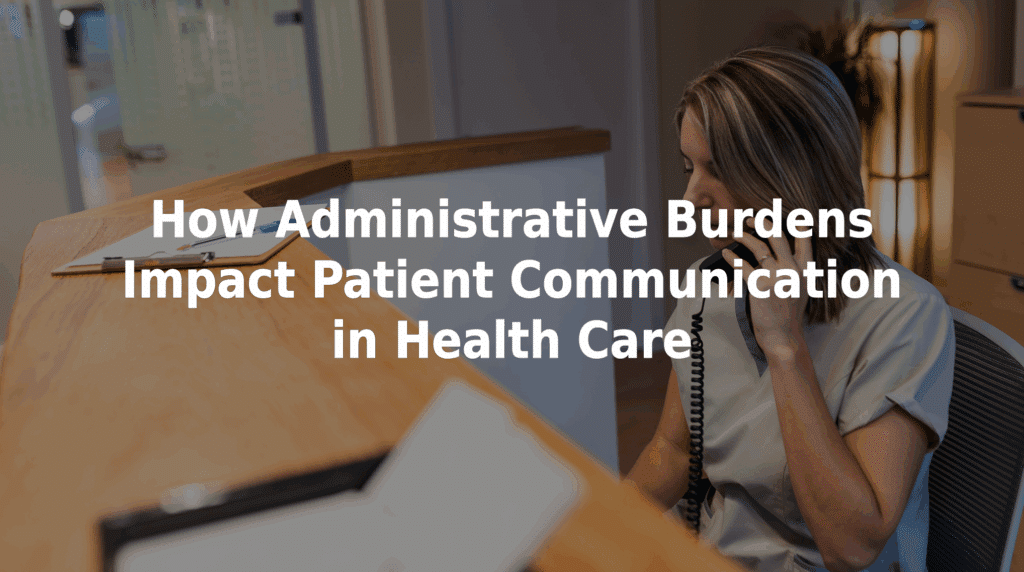How Administrative Burdens Impact Patient Communication in Health Care
As healthcare evolves, administrative tasks are increasingly pulling staff away from meaningful patient interactions. The impact is especially evident in patient communication during medical intake. Let’s explore how administrative burdens impact patient communication in health care, and how practices can regain their efficiency.
1. Time Pressures Limit Quality of Patient Interactions
Administrative staff often manage multiple responsibilities at once: answering phones, verifying insurance, checking in patients, processing paperwork, and managing records. With so many tasks in play, conversations with patients can become rushed or interrupted. This often leads to incomplete symptom documentation and frustrated callers who feel unheard.
Best Practice: Automate repeatable tasks like message intake so that staff can dedicate more of their attention to live patient needs.
2. Inconsistent Message Documentation From Nonclinical Staff
Front desk and call center staff are typically nonclinical. Combined with heavy workloads, their messages may not be standardized. This means that important patient concerns may be missed or misinterpreted, or delayed from reaching the right clinician.
3. Call Backlogs Reduce Timely Patient Follow-Up
Busy practices may not be able to return every call promptly. Patients who leave vague or incomplete messages often require a second round of calls just to clarify their needs. This creates a cycle of delays, longer hold times, and potential care gaps.
Actionable Insight: Using a structured intake tool that gathers patient-reported symptoms up front can reduce the need for callbacks and allow providers to prioritize urgent cases immediately.
4. Burnout Among Staff Hurts Communication Quality
Staff members overwhelmed by administrative demands are more prone to fatigue and frustration — both of which degrade the quality of their communication. When burnout becomes chronic, turnover increases and patient satisfaction drops.
Tip: Streamlining or offloading repetitive administrative tasks can reduce stress and allow staff to focus on higher-value interactions with patients.
5. Manual Intake Slows Down Clinical Workflows
When medical messages are handwritten or typed manually into an EHR, the more likely they are to have errors, be difficult to interpret, or require duplicate work. This adds time to every step of the care process, and can erode trust if patients feel their concerns aren’t understood or addressed appropriately.
6. Patients Expect Faster, More Convenient Communication
Modern patients are accustomed to digital convenience. When they’re asked to wait on hold or repeat their symptoms to multiple staff members at your front desk or a call center, they may feel ignored or underserved. This can directly impact patient satisfaction scores and retention rates — especially in competitive markets.



